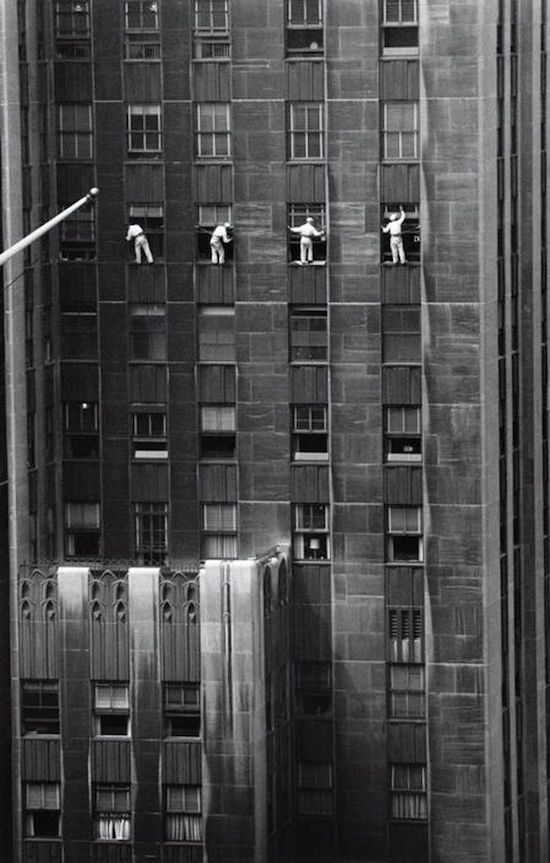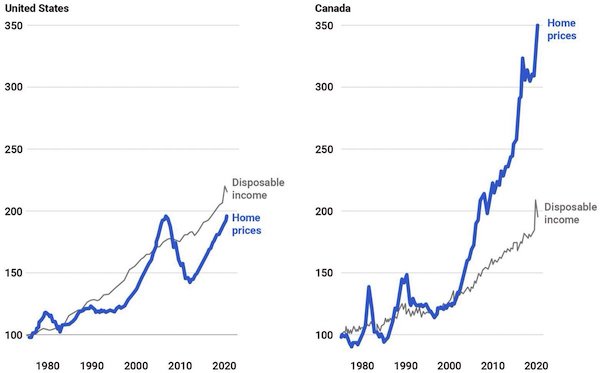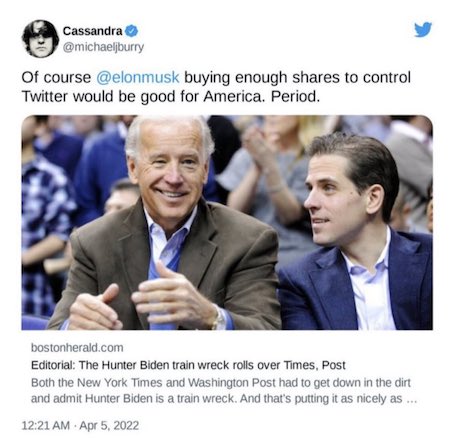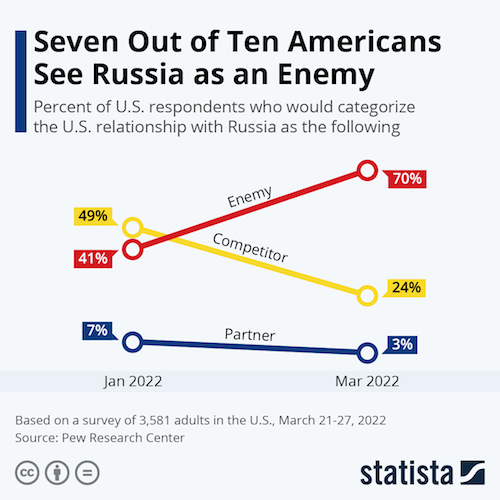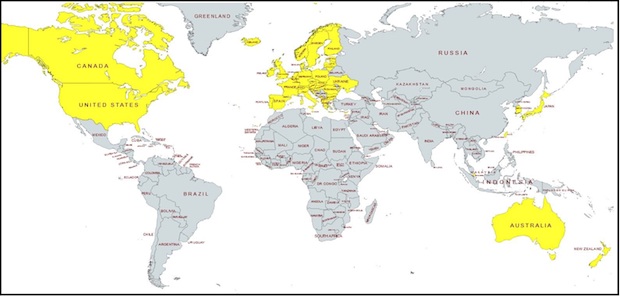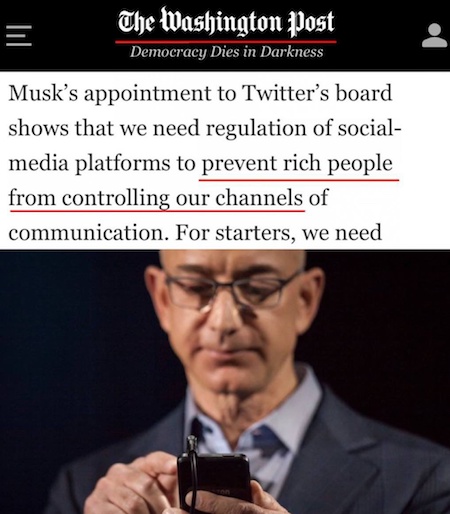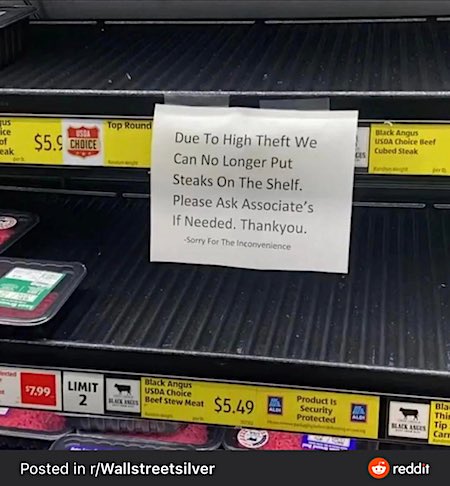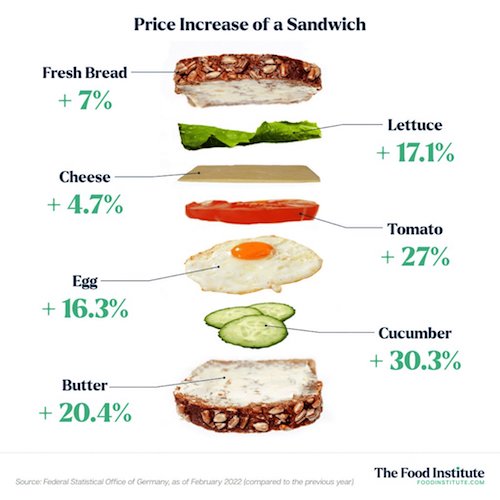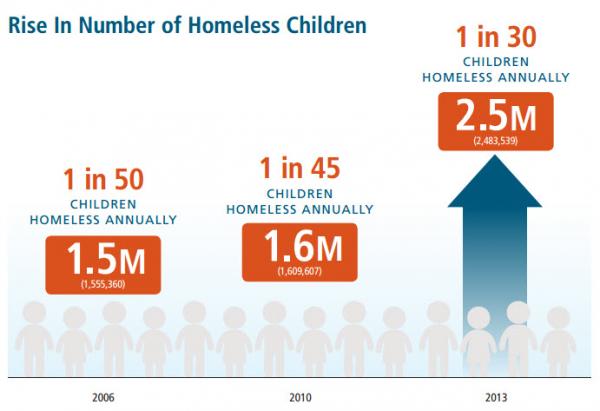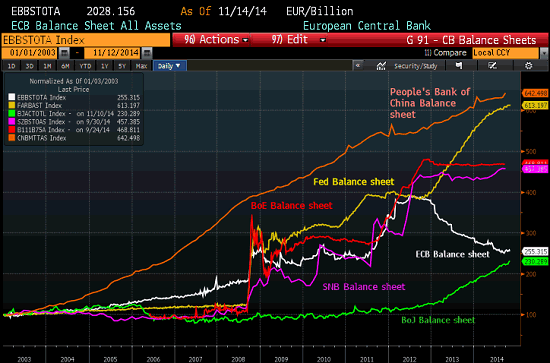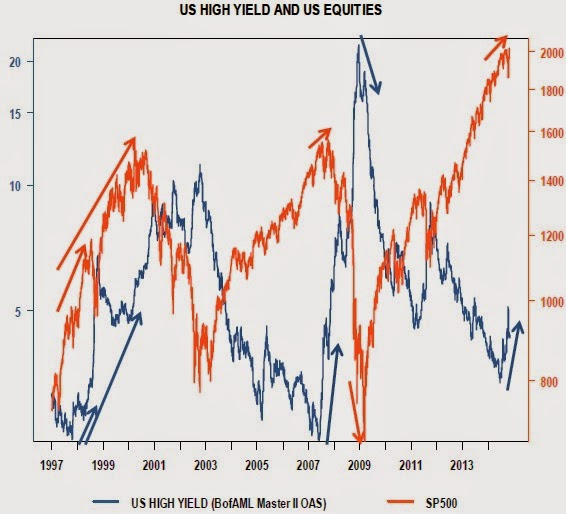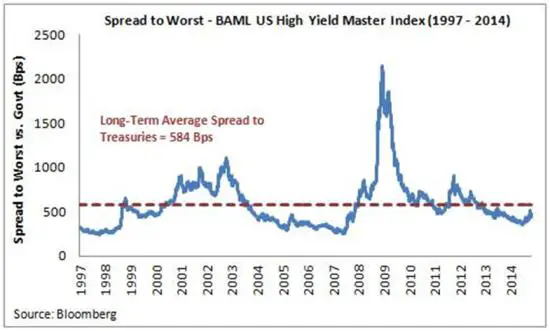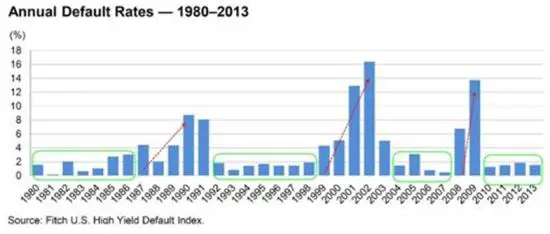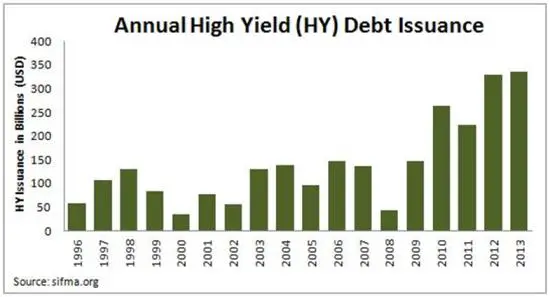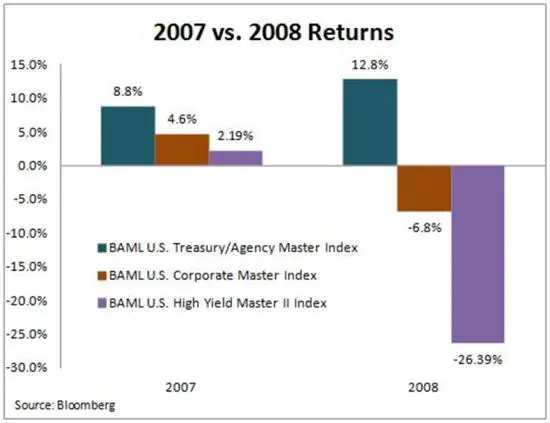
Théodore Géricault Prancing Grey Horse 1812



Macgregor
https://twitter.com/i/status/1784739796197269970

Putin
https://twitter.com/i/status/1784696945174360069

Truth
Time goes by… pic.twitter.com/LFVhGpqckt
— Zlatti71 (@Zlatti_71) April 28, 2024

66 years apart.
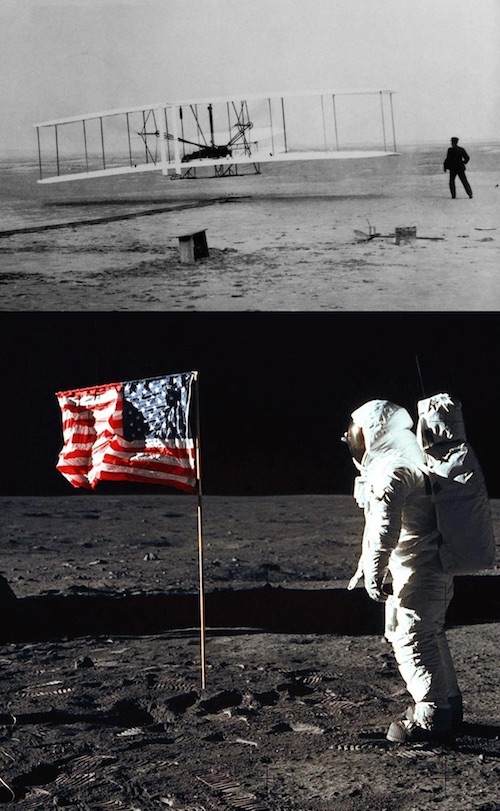


Tax
tax
tax
https://twitter.com/i/status/1784302250577305950

RFK JFK
RFK Jr: President Trump said he was gonna drain the swamp the first time
“Why do you give him a second term if he messed it up so badly the first time?”
“If I had been President, I would have done it”
“When my uncle was President during the Cuban Missile Crisis, there were 13… pic.twitter.com/gRfPQ1LfpD
— Holden Culotta (@Holden_Culotta) April 28, 2024


“..Mr. Smith “does not have authority to conduct the underlying prosecution.”
• Justice Thomas Raises Scrutiny on Jack Smith Appointment in Trump Case (ET)
U.S. Supreme Court Justice Clarence Thomas has asked former President Donald Trump’s lawyers about whether they challenged special counsel Jack Smith’s authority to bring charges against the president. On April 25, the U.S. Supreme Court heard oral arguments in a case about President Trump’s being immune from prosecution for official acts carried out during his presidency. During the hearing, Justice Thomas asked John Sauer, the attorney who represented President Trump in court, “Did you, in this litigation, challenge the appointment of special counsel?” Mr. Smith was appointed to the case by Attorney General Merrick Garland. Mr. Sauer said that Trump attorneys have not raised such concerns “directly” in the current case at the Supreme Court. However, “it points to a very important issue here, because one of [the prosecution’s] arguments is, of course, that we should have this presumption of regularity,” Mr. Sauer stated.
“That runs into the reality that we have here an extraordinary prosecutorial power being exercised by someone who was never nominated by the president or confirmed by the Senate at any time,” he said. “We hadn’t raised it yet in this case when this case went up on appeal.” Mr. Sauer said he agrees with the “analysis provided by Attorney General [Edwin] Meese and Attorney General [Michael B.] Mukasey,” referring to the amicus brief the two former attorneys general submitted to the Supreme Court on March 19. In it, the two attorneys general noted that irrespective of what one thinks about the immunity issue, Mr. Smith “does not have authority to conduct the underlying prosecution.” “Those actions can be taken only by persons properly appointed as federal officers to properly created federal offices. Smith wields tremendous power, and effectively answers to no one,” they wrote. “However, neither Smith nor the position of special counsel under which he purportedly acts meets those criteria. And that is a serious problem for the rule of law, whatever one may think of the conduct at issue in Smith’s prosecution.”
Attorney General Garland appointed Mr. Smith as special counsel of the U.S. Department of Justice, citing several statutes. However, none of these statutes even “remotely authorized the appointment by the Attorney General of a private citizen or government employee to receive extraordinary criminal law enforcement power under the title of Special Counsel.” The two attorneys general added there are times when the appointment of a special counsel would be appropriate and that the U.S. Constitution allows for such appointments. However, “the Attorney General cannot appoint someone never confirmed by the Senate, as a substitute United States Attorney under the title ‘special counsel,’” they added. “Smith’s appointment was thus unlawful, as are all actions flowing from it, including his prosecution of former President Trump,” they wrote.
The U.S. Supreme Court is hearing President Trump’s immunity case as part of Mr. Smith’s indictment of the former president alleging an attempt to subvert the transfer of presidential power following the 2020 election. President Trump is charged with four criminal counts in the case. President Trump had requested that the lower courts back his claims of presidential immunity, as the actions were undertaken while he was serving as president. After the lower courts refused to grant the request, the 45th president appealed to the U.S. Supreme Court, contending that his actions as president are covered by presidential immunity. The Supreme Court agreed to consider the following question—“whether and, if so, to what extent does a former president enjoy presidential immunity from criminal prosecution for conduct alleged to involve official acts during his tenure in office?”
In court, Mr. Sauer warned the justices against giving a judgment that undermines presidential immunity, noting that U.S. presidents would no longer be able to carry out their job properly if they were unsure whether their actions would trigger prosecution years after their time in office. “The implications of the court’s decision here extend far beyond the facts of this case,” he said. “For 234 years of American history, no president was ever prosecuted for his official acts. The framers of our Constitution viewed an energetic executive as essential to securing liberty.” “If a president can be charged, put on trial, and imprisoned for his most controversial decisions as soon as he leaves office, that looming threat will distort the president’s decision-making precisely when bold and fearless action is most needed.” Moreover, a lack of presidential immunity will denote that every president becomes a potential candidate for extortion by political rivals while still in office, Mr. Sauer added.
“Prosecuting the president for his official acts is an innovation with no foothold in history or tradition and is incompatible with our constitutional structure,” he said. The Supreme Court justices appeared skeptical about President Trump’s claims that he has the right to absolute immunity for his actions as president. However, the justices also appeared to be open to accepting that presidents have some level of immunity. The court could decide to remand the case to the Washington district court, with instructions for differentiating between official and private acts of a president so that additional fact-finding proceedings can be done. Such a move would delay the former president’s trial in Washington and potentially proceedings related to three other cases. This would give President Trump a strategic win as he attempts to hold off trials until after the presidential election.

Looks like he was set up in every single case.
• Was Trump Set Up In Classified Docs Saga? (Margolis)
This week in Florida, Judge Aileen Cannon unsealed a trove of new documents that Jack Smith fought to keep hidden. And you’ll soon find out why. Among the documents unsealed were extensive exhibits, motions, and other filings shedding light on the intricate web of communication between the Biden White House and the National Archives and Records Administration in the lead-up to Trump’s indictment. Investigative journalist Julie Kelly found something interesting in the documents that could change everything. The first things is testimony from an FBI agent who testified that the General Services Association (GSA) had been in possession of Trump’s boxes in Virginia before ordering Trump’s team to come get them. “So an entire pallet full of boxes that had been held by GSA somewhere outside of DC is dumped at Mar-a-Lago,” Kelly notes. “Apparently these are the boxes that ended up containing papers with ‘classified markings.'” “I will double check indictment but I don’t recall this event in the timeline,” she added.
So, it appears that the Biden administration may have been responsible for shipping classified information to Trump’s Mar-a-Lago home in Florida. This development is significant because Trump has previously blamed the GSA for packing the boxes that contained the classified documents, only to later accuse Trump of essentially stealing them and using that as pretext for sending the FBI to raid his Mar-a-Lago home in August 2022. “It was a set-up from the get-go,” remarked Tom Fitton, the founder of Judicial Watch. Meanwhile, Joe Biden had classified information that he was never entitled to have stored in boxes in his garage for years, but was not charged. Biden blamed staffers for packing the classified information.
While this may not prove the Biden administration set up Trump in the classified documents case, considering the way the Biden administration has abused the legal system against Trump, no one can confidently say they wouldn’t. Even so, it still raises other legitimate questions. For example, if the GSA had been in possession of the boxes, why wasn’t a review of the materials conducted before they instructed Trump’s team to get them? When it comes to classified information, they wouldn’t have expected Trump and his staff to be responsible for ensuring that classified documents weren’t among the records. Perhaps they did review the contents of the boxes and knew classified documents were contained in them before they told Trump’s people to come get them.

“..A CNN poll released on Thursday showed that just 13% of Americans believe Trump is being treated the same as other criminal defendants.”
• US Voters Warming Up To Trump – CNN Poll (RT)
Americans appear to be looking more positively at former US President Donald Trump as this year’s election draws closer, increasingly favoring him over incumbent Joe Biden and viewing his term in office as a success, a new CNN poll has shown. The poll released on Sunday found that US voters favor Trump by a 49%-43% margin in a hypothetical one-on-one matchup with Biden. That compares with the Republican’s 49%-45% over the incumbent Democrat in January. Trump has a wider lead when the full field of contenders is included, as will be the case when voters go to the polls in November, the survey showed. He has a 42%-33% margin over Biden, followed by 15% for independent candidate Robert F. Kennedy Jr. The remaining 10% support third-party candidates or are undecided. Two-thirds of US voters do not understand how anyone could support Biden, while 52% say there is no chance they would vote for the incumbent under any circumstance.
By comparison, 63% of respondents cannot see how anyone could support Trump, and 47% say there is no chance they would vote for him. Only 47% of voters are satisfied with the candidates they have to choose from, including 44% of Democrats and 63% of Republicans, CNN said. Biden is viewed negatively by 58% of voters, while 53% have a negative opinion of Trump. Only 65% of respondents believe Biden legitimately won the 2020 presidential election, unchanged from when the same question was asked after the January 2021 US Capitol riot. Opinions of Trump’s term as president have improved since he left office. Looking back on his performance, 55% of Americans believe Trump’s presidency was a “success,” up from 45% when voters were polled after the riot. By comparison, 39% of respondents believe Biden’s term has been a success, the survey showed.
Similarly, six in ten Americans disapprove of Biden’s performance as president. He gets low marks for his handling of several issues of top concern for voters, including 66% disapproval on the economy, 71% disapproval on inflation and 71% disapproval on the Israel-Hamas war. Only about four in ten Americans believe the US “has a responsibility” to be involved in Middle East conflicts. Trump has accused Biden and the incumbent’s allies of trying to derail his candidacy through the court system. The ex-president faces 91 criminal charges in four separate indictments. A CNN poll released on Thursday showed that just 13% of Americans believe Trump is being treated the same as other criminal defendants. Only 44% are confident that the jury chosen in the first Trump case that has gone to trial – now underway in New York City – will deliver a fair verdict.

“Trump’s support stands steadily at 49%, while Biden holds 43%..”
• Spielberg Helping To Direct Biden’s Campaign – NBC (RT)
Steven Spielberg, one of Hollywood’s best-known film directors, has been enlisted to assist US President Joe Biden with his re-election campaign providing strategy for the Democratic National Convention (DNC) that is scheduled to take place between August 19 and 22 in Chicago, NBC reported on Friday. According to the publication, Spielberg, who is a long-time supporter of Biden, has been actively participating in meetings with the organizers of the event, where more than 5,000 delegates from 50 US states will officially select the Democratic party’s presidential and vice presidential nominees. The filmmaker is reportedly offering his insights on how best to “convey the president’s successes and his vision for the country” to delegates and viewers as Biden prepares to face former President Donald Trump in a November rematch.
“Steven wants to be as helpful as possible to the president,” a well-placed source told the Deadline media outlet. “He believes this is one of the most important elections in the nation’s history.” Spielberg has proven to be a dedicated donor to the Biden-Harris ticket, having appeared at a mega-fundraiser in December last year, which was hosted by his friend and former DreamWorks business partner Jeffrey Katzenberg, who is also a co-chair of Biden’s campaign. The famed director, however, has no plans to produce a movie of the August event as he did for John Kerry’s and Barack Obama’s nominations, the NBC source has said.
The publication also mentions that Biden’s campaign is in a separate negotiation with former President Obama about appearing at a Los Angeles fundraiser in mid-June, which would reportedly feature George Clooney and Katzenberg as hosts. A previous star-studded event in New York City last month, which was attended by Barack Obama and Bill Clinton, raised more than $25 million in one night. Biden currently trails behind his Republican rival, according to a new national poll released by CNN on Sunday. Trump’s support stands steadily at 49%, while Biden holds 43%, which is a two-point drop since January when 45% of Americans said they were ready to cast a vote for the current president.

“..It is reactionary to the extent it does not have a vision for improving the world, but wants to take back the world to the way it was..”
• The US and the UK Are Pushing For Total War On All Fronts (RT)
The events of recent weeks have produced a sudden jolt in Western politics. From a lethargy that was starting to creep into US and western discourse over the Ukraine war, Iran’s attack on Israel suddenly seemed to have had the effect of awakening Ronald Reagan from his grave and leading to a surge of neo-conservativism on steroids, on both sides of the Atlantic. US House Speaker Mike Johnson did a complete 180-degree U-turn and proclaimed himself a “Reagan Republican” passing a series of aid bills for astronomical overseas spending that he had otherwise blocked for months, as he denounced an “axis of evil.” Along with that, a proposed TikTok ban bill came out of nowhere too and was quickly signed into law.
Then the UK decided to devote its largest ever aid package to Ukraine, with Prime Minister Rishi Sunak warning of an “axis of authoritarian states” and amplifying ideologically combative rhetoric. At the same time, it was then revealed Biden had sent 300km long range ATACMS missiles to Ukraine despite having pledged not to do so for years, fearing escalation. Finally, EU President Ursula von der Leyen has suddenly dramatically increased economic warfare on China, pushing the European Commission to open probes on scores of Chinese exports. Where exactly did all this come from?
It’s almost as if the US and its allies seized upon the tensions between Iran and Israel in order to “whitewash” their slate and double down on a series of objectives they are otherwise losing public support for, including the war in Ukraine, but also Israel’s invasion of Gaza. One has to wonder if the Israeli attack on the Iranian compound in Damascus, which provoked Tehran’s response, was deliberately staged, coordinated and planned for this purpose. It served the mutually convenient goal of letting both Prime Minister Netanyahu and Western governments off the hook for whatever opposition they had otherwise faced.
It should be abundantly clear now that the current powers that be, in London and Washington, have absolutely no intent of letting up on the wars they have provoked, while also pushing for a potential third one with China, and seem indifferent to the consequences, even if for example, the Israel-Gaza war is shattering the West’s claims of moral superiority. In each case, the stakes are very high, Western foreign policy at large has taken on a very zero-sum and ideological character which bemoans the loss of hegemony, and seeks to uphold it at all costs. It is reactionary to the extent it does not have a vision for improving the world, but wants to take back the world to the way it was. It is a sense of entitlement and privilege that wants to suppress an emerging multipolarity.
Because of this, it has become impossible for Western leaders to ever consider the concept of compromise in these respective theaters, and they refuse under any circumstances to make concessions which could be deemed strategic. This has produced a position where the only outcome they are willing to accept in Ukraine is what they deem “the defeat of Putin,” and have been subtly escalating ever since, edging ever closer to the point where a “proxy war” becomes a direct one for all intents and purposes. NATO military advisors are already on the ground, and Ukrainian attacks are being guided by NATO intelligence or even coordinated by British admirals.

“The agreement should be truly exemplary and reflect the strength of American leadership..”
• Zelensky Wants 10 More Years Of US Funding (RT)
The latest US aid package for Kiev, which was only approved by Congress after more than six months of partisan feuding, might be small potatoes compared to what Ukrainian President Vladimir Zelensky has in mind for his biggest benefactor. The Kiev government is negotiating with President Joe Biden’s administration on a long-term agreement that would put Washington on the hook to provide Ukraine with military, economic and political support for the next decade, Zelensky said on Sunday in his daily video address. Such commitments are needed to ensure Ukraine with the “efficiency in assistance” it needs to stem the recent battlefield advances by Russian forces and gain the upper hand, he insisted. “We are working to commit to paper concrete levels of support for this year and for the next ten years,” Zelensky said. “It will include military, financial, and political support, as well as what concerns joint production of weapons.”
Kiev has already signed bilateral security agreements with several NATO members, including the UK, Germany and France. Zelensky said he wants the long-term deal under negotiation with Washington to be the strongest such pact for Ukraine. However, Ukraine’s bilateral agreements with Western backers so far have stopped short of mutual-defense commitments. The deals merely pledge long-term aid, including support in the event of a future attack, and they are not legally binding. The agreement with Berlin, for instance, can be terminated with six months’ notice. Zelensky said he wants Ukraine’s bilateral pact with Washington to include specific levels of aid. “The agreement should be truly exemplary and reflect the strength of American leadership,” he said.
US lawmakers approved $61 billion in additional aid for Ukraine earlier this month, after House Speaker Mike Johnson (R-Louisiana) overrode opposition in his own party to pass the bill with unanimous Democrat support. The Biden administration ran out of funding for Ukraine aid earlier this year, after using up $113 billion in previously approved assistance packages. Republican lawmakers have argued that Biden is merely prolonging the bloodshed in Ukraine without offering a clear strategy for victory or a peace deal with Russia. A poll released in February showed that nearly 70% of Americans want Biden to push for a negotiated settlement with Moscow, involving compromises on both sides, rather than continuing to fund the conflict.

“Germany is mostly concerned about the move potentially opening a Pandora’s box of historical restitution and reparations claims, including those linked to the nation’s own Nazi past..”
• ‘Motherland Is Not For Sale’ – Zakharova (RT)
Russia will not cede any territory in exchange for the prospect of recovering its assets frozen abroad, Foreign Ministry spokeswoman Maria Zakharova said on Telegram on Sunday. Zakharova was commenting on a Wall Street Journal article claiming that Germany is considering trying to use the funds as leverage during potential peace talks between Moscow and Kiev. Berlin has been opposing the US push to seize the frozen Russian assets and use them to fund Ukraine’s military and economic needs, according to the article, which was published on Sunday. One of the arguments reportedly brought up by German officials revolved around using the money as “leverage in any talks to end the war.” That strategy would supposedly force Moscow to “cede” some of the territory that Kiev lays claim to, the WSJ said. The outlet did not provide any exact quotes or identify any specific German officials supporting this line of thought. “I do not know who says what but assets are not to be exchanged for territories,” Zakharova wrote in a Telegram post. “The motherland is not for sale.”
Zakharova also maintained that the Russian assets should “stay untouched” and warned that “any Western theft would be met with a harsh response.” “Many people in the West have already understood this. It’s a pity that not everyone [has],” she added. The EU and other G7 nations have blocked an estimated $300 billion in reserves belonging to the Russian central bank since the start of the Ukraine conflict in 2022. Most of the funds are being held by the Belgium-based clearinghouse Euroclear. Earlier in April, the US passed a bill allowing Washington to liquidate frozen Russian assets and transfer the funds obtained to Ukraine. However, the US holds only around $6 billion out of the total amount. Washington has long been pushing its allies to seize the money outright but has encountered resistance from some allies, particularly Germany, according to the WSJ. The potential use of the funds as a bargaining chip in future talks is just one of Berlin’s reasons, though, according to the WSJ. Germany is mostly concerned about the move potentially opening a Pandora’s box of historical restitution and reparations claims, including those linked to the nation’s own Nazi past, it said.
Berlin is currently facing such demands from Poland, which has been seeking $1.3 trillion in compensation since 2022. Greece asked for over $300 billion in 2019, while in Italy courts even reportedly attempted to seize German state property to fund paying compensation to the descendants of victims of the Nazi occupation. The German government has so far brushed off those demands, arguing that “international law prohibits individuals from making claims against states in foreign courts and that state assets are immune from seizure,” the WSJ said. Seizing Russia’s money would violate this principle and greatly undermine Berlin’s legal position, it added. Similar concerns are also reportedly driving Japan’s opposition to seizing the assets, since it also faces reparation claims from South Korea and other neighbors, the outlet reported. Tokyo and Berlin should also not be the only ones to worry since the move could open a way for other nations to claim reparations for slavery and colonialism, according to the WSJ.

“Ukraine does not spare its own citizens. And this is a tragedy for the people, a tragedy for the country.”
• Many People to Question Zelensky’s Legitimacy Soon – Kremlin (Sp.)
Many people, including in Ukraine, will question the legitimacy of Ukrainian President Volodymyr Zelenskyy soon, and he will “have to justify himself,” Kremlin spokesman Dmitry Peskov said on Sunday. “Very soon, the moment will come when many people, including in Ukraine, will question his [Zelensky’s] legitimacy. In any case, even from the legal point of view, it will have to be done. And he will have to justify himself somehow,” Peskov told Rossiya 1 reporter Pavel Zarubin. When asked to comment on the remarks of the Ukrainian president, who assessed the new weapons supply to Kiev as a good deal enabling Ukrainians to fight for themselves, the Kremlin spokesman called Zelensky the “specific president of the specific regime.” “Ukraine does not spare its own citizens. And this is a tragedy for the people, a tragedy for the country. First, they infected their country with all sorts of nationalist manifestations, and now they no longer shun anything: they do not hesitate to throw new thousands and thousands of people into the furnace of this war,” Peskov added.
He also expressed the belief that Russia would achieve victory in the special military operation, as the dynamics of the situation on the front were showing that the “outcome is predetermined.” Ukraine was due to hold a presidential election on March 31, but it was called off due to martial law and general mobilization. Zelensky, who was sworn into office in May 2019, said it was “not the right time” for elections. Russia launched its special military operation in Ukraine on February 24, 2022, in response to calls by the Donetsk and Luhansk people’s republics. Moscow said the operation, which targets Ukrainian military infrastructure, aims to “demilitarize and denazify” Ukraine and completely liberate Donbass. Western nations have imposed numerous sanctions on Russia and have been supplying weapons to Ukraine.

“.. a number of Western states, including the US, UK, and France, promised support to Kiev, but refused to guarantee it.”
• Ukraine Rejected 2022 Peace Deal Over Russian Language, ‘Banning Nazism’ (Sp.)
Russia and Ukraine were closer than ever to concluding a peace treaty in April 2022, but the Kiev regime rejected several of Moscow’s demands outright, German newspaper Welt Am Sonntag revealed. Specifically, terms regarding the status of the Russian language, and Kiev’s official rejection of Nazism were seen as unpalatable by the regime led by Volodymyr Zelensky, according to the 17-page draft peace treaty between the sides obtained by Welt. It follows from the draft, agreed during negotiations in Turkiye on April 15, 2022, that Moscow and Kiev reached an agreement on the basic conditions for ending the conflict, but there were some unresolved issues that were to be discussed personally by President Vladimir Putin and Volodymyr Zelensky in the same month. That summit was never to take place. “Countless lives” could have been spared if this “advantageous” deal had been concluded, the outlet stated.
Since the beginning of Russia’s special military operation, Ukraine’s military has lost almost 500,000 people, Russian Defense Minister Sergei Shoigu stated on April 23. Welt cited a member of the former Ukrainian negotiating team as calling it, in hindsight, “the best deal we could have had.” First of all, in line with Article 1 of the draft treaty, Ukraine committed itself to “permanent neutrality.” Thus, Kiev was to abandon ambitions of membership in a military alliance, including NATO. The ensuing 13 sub-points of the first article outline the extensive definition of neutrality. Ukraine agreed never to “receive, produce, or acquire nuclear weapons,” not to allow foreign weapons or troops on its soil, and not to provide its military infrastructure, including airports and seaports, to any other country. Furthermore, in line with the draft, Kiev renounced holding military exercises with foreign participation and partaking in any military conflicts. However, EU membership for Kiev was explicitly not hindered, according to Article 3 of the document.
Article 5 of the draft treaty had outlined comprehensive security guarantees that the five permanent members of the UN Security Council – the US, UK, France, China, and Russia – could provide for Ukraine. In the event of a conflict, the guarantor states would commit to supporting Kiev’s self-defense within a maximum of three days, as enshrined in the UN Charter. This assistance could take the form of “joint action” by all or individual guarantor powers. According to Article 15, this treaty was supposed to be ratified in each signatory state to ensure legal validity. The article notes that one of the difficulties regarding this issue was the requirement for the consent of all guarantor states, which meant Russia could resort to a veto. At the same time, a number of Western states, including the US, UK, and France, promised support to Kiev, but refused to guarantee it.

Time to replace Ursula.
• Zelensky Demands EU ‘Fulfill Obligations’ On Ukrainian Membership (RT)
Kiev has fulfilled every requirement the EU has set out for it, and is ready to begin accession talks, Ukrainian President Vladimir Zelensky stated in a video address on Sunday, demanding that the bloc now follow through. Kiev made a formal request to join the bloc in February 2022, shortly after the escalation of the Russia-Ukraine conflict. It was granted candidate status in June of the same year. In December 2023, EU officials agreed to open up accession negotiations, setting out a number of steps for Kiev to take first in preparation. All these steps have been completed, Zelensky claimed in a video address on Sunday, promising that this is the year to bring “results with the European Union.”
“Ukraine has fulfilled all the necessary conditions for the real start of the accession negotiations, and now the EU side must fulfill its obligations,” he said.The EU’s accession criteria include stable democratic institutions, the rule of law, protection of human rights and minorities, along with a robust market economy and the institutional capacity to cope with the responsibilities of being an EU member state. One of the key issues to tackle was widespread corruption. Amid a string of high-level corruption scandals, lawmakers from Ukraine’s biggest sponsor – the US – expressed concerns about their aid being misused. Last month, the Ukrainian Defense Ministry announced plans to introduce a new logistics planning department, after several high-ranking military officials were arrested for embezzlement in the months before. Kiev is currently preparing for a peace conference set to take place in Switzerland this June, Zelensky added. “The world majority must force Russia into peace – and it can do this,” he said.
Moscow has not been invited to participate, and has dismissed the conference as “nonsense.” President Vladimir Putin reiterated earlier this month that Russia has not rejected a peaceful solution to the conflict, but would not accept a deal that ignore the country’s interests. Kiev is also gearing up for the NATO summit this summer, according to the Ukrainian president. The US-led military bloc “should not be afraid of its own strength or shy away from its own foundations,” he said, calling for a “strong political signal.” Ukraine’s ambition to join NATO – a goal enshrined in its constitution – was one of the key reasons for Russia’s military operation against Kiev, Moscow has stated. One of Russia’s major goals in the conflict is Ukrainian neutrality, Putin has said.

“.. the Hague could not consider arrest warrants against Israeli leaders without Washington’s informal consent…”
• Israel Concerned Biden May Throw Netanyahu ‘Under the Bus’ at ICC (Sp.)
Most of America’s overseas allies are signatories to the International Criminal Court’s Rome Statute. The US itself quit the Court in 2002 before launching its war of aggression in Iraq. Israel is not a party to the ICC, but is concerned about the “dangerous precedent” that could be set by threats to drag its leaders before the Court. Israeli officials are concerned the Biden administration may abandon the Netanyahu government if the ICC issued arrest warrants against the Israeli prime minister and senior members of his cabinet. “Where is Biden? Why is he quiet while Israel will potentially be thrown under the bus?” an Israeli diplomatic source told the Jerusalem Post on Sunday. The source’s comments follow reports in Israeli media this week citing senior ICC sources that the Hague could not consider arrest warrants against Israeli leaders without Washington’s informal consent.
“The sources at The Hague said that it is impossible that the chief prosecutor would have decided on such a dramatic step, in a war that is still ongoing…if he had not at least had a ‘green light’ from the Americans. If this is true, this is another unprecedented low in relations between Israel and the US, at a very sensitive time, on the eve of the ground entry to Rafah,” Israeli journalist Amit Segal wrote. The Jewish News Syndicate pointed to ICC chief prosecutor Karim A. A. Khan’s alleged tendency to take marching orders from the US, pointing to Washington’s support for his election in 2021, and to his controversial decision to close out two ICC cases which “greatly troubled the Americans” related to suspected US war crimes in Afghanistan.
Separately on Sunday, Israel’s Walla news site reported that Netanyahu had spearheaded a “nonstop push over the telephone” focused on calls to the White House, to prevent ICC arrest warrants from being issued. Netanyahu warned Friday that Israel would “never stop defending ourselves,” and that while “decisions of the court in the Hague will not affect Israel’s actions, they would be a dangerous precedent threatening the soldiers and officials of any democracy fighting criminal terrorism and aggression.” “Under my leadership, Israel will never accept any attempt by the ICC to undermine its inherent right of self-defense. The threat to seize the soldiers and officers of the Middle East’s only democracy and the world’s only Jewish state is outrageous. We will not bow to it,” Netanyahu added.

“Washington is a criminal enterprise, and there is no electing someone big enough to change this.”
• Insane vs Sane – Demonic vs Divine – Catherine Austin Fitts (USAW)
Catherine Austin Fitts (CAF), Publisher of The Solari Report, financial expert and former Assistant Secretary of Housing (Bush 41 Admin.), has long said, “The federal government is being run as a criminal enterprise. . . .not just a little criminal, but a lot criminal.” Now, CAF contends what is going on in America is much more than greedy criminals. CAF says, “This has turned into warfare against “We the People” on a spiritual level.” CAF goes on to point out, “There is so much effort in persuading people to think there is nothing you can do, and it’s hopeless. Let me tell you something . . . the central bankers are telling you what they are going to do, and this is not far away in the future. You have all these merchant codes where you cannot use your credit card to buy a gun or the bank throws you out. That’s the control grid getting built.”
What can you do to fight for freedom? CAF says, “Bring transparency, and the second thing is to use cash. If we can all use cash, build cash back up and keep checks going, if you have cash and checks, they cannot go to an all-digital financial system. Find out who is leading the way in your state, and see what you can do to support them. Above anything, you can pray because this is a spiritual war. The devil wants you to believe it’s hopeless and there is nothing you can do. . . . It’s not true. The sane cannot go along with the insane. The divine cannot go along with the demonic. You have to say NO! I am seeing this all over the country. I am seeing Treasurers and State Attorney Generals, and they are all pushing back because they realize this is insane. You cannot go along with this.”
CAF says not only do the Deep State globalists want control of the financial system, but they also want control of your food. CAF says, “You see at this level when you are trying to protect freedom, they cannot get financial control unless they can control the food supply. People can always start their own currencies as long as they can grow food. If you look at the push for financial control and central bank digital currency, it is the same push. They are pushing to control the food supply.” CAF thinks Washington is so broken, corrupt and criminal that whoever wins the Presidential Election it will not make much of a difference. CAF points out, “Look at how quickly Speaker Mike Johnson caved. Speaker Johnson caved for Ukraine and war all over the world, but he won’t protect our borders. Mike Johnson, Christian, conservative and not a dime to protect our borders. . . Washington is a criminal enterprise, and there is no electing someone big enough to change this. This is not Trump vs Biden. This is the pro-centralization team in Washington. We have to pull power back from Washington.”




Water fuel cell
More than 30 years ago Stanley Meyer invented a fuel cell that could make all cars run on any kind of water for only $1500
Fresh water, rain water and even sea/salt water. Then he got murdered… pic.twitter.com/iPsJnqYHhV
— illuminatibot (@iluminatibot) April 28, 2024

Comfiest
https://twitter.com/i/status/1784425052705792202

Zookeeper
Lioness tried her best in calming Lion from attacking a stupid zookeeper who was making eye contact with lion! pic.twitter.com/ySThcL4Z7c
— Nature is Amazing ☘️ (@AMAZlNGNATURE) April 28, 2024

Fluff
https://twitter.com/i/status/1784455315921994040

Duck fight
https://twitter.com/i/status/1784344522064809985

Bambi
https://twitter.com/i/status/1784575390943465716

Cat+
— Why you should have a cat (@ShouldHaveCat) April 27, 2024


Support the Automatic Earth in wartime with Paypal, Bitcoin and Patreon.




